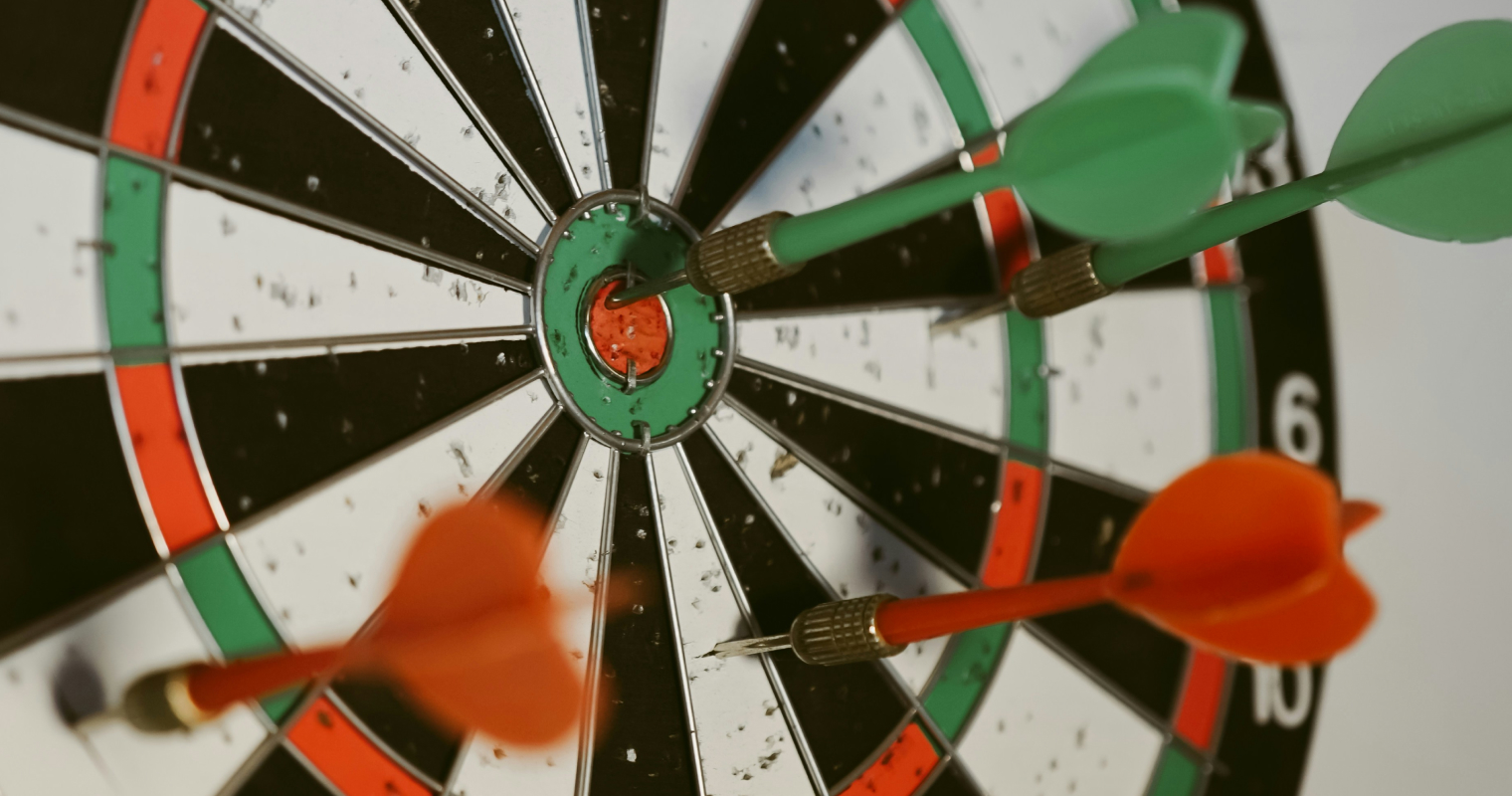Last Updated on February 13, 2024
A hangover isn’t the only sign your body is saying, “Hey, take it easy with the alcohol!”
For some of us, half a dozen drinks during a night out aren’t yet enough to faze us. And yes, you may feel great and energized upon waking up—but that doesn’t mean you didn’t have too much to drink the night before.
In this guide, we’ll explore 15 short and long-term signs that you’re drinking too much, including symptoms that don’t necessarily involve a hangover.
How Much Is Too Much?
According to the CDC, moderate drinking is defined as having two standard drinks or less per day for men and one drink or less per day for women.
Meanwhile, binge drinking focuses more on how quickly and how much you drink in one sitting. The CDC defines binge drinking as drinking that brings your blood alcohol concentration (BAC) to 0.08% or more. This is usually achieved if you consume five or more standard drinks on a single occasion for men or four or more drinks on a single occasion for women. The typical recommendation is to stick to 1-2 drinks per hour.
If you’re not consciously keeping track of the drinks you’ve chugged, it’s easy to go over these limits.
Take the 3-min quiz15 Physical Signs You’re Drinking Too Much
These are some signs your body may be telling you to take your imbibing down a notch.
1. Changes in your skin
Drinking too much alcohol often spells bad news for your skin complexion and youthfulness. Alcohol can lead to dehydration and inflammation of the skin as well as throw off your sleep cycle. Hence, some possible effects of alcohol on your skin include the following:-
- Dry skin and lips
- Duller skin complexion
- Reduced skin elasticity
- Puffy or swollen-looking eyes
- Amplified wrinkles, crow’s feet, and dark circles.
Additionally, drinking can aggravate certain skin conditions, such as psoriasis and rosacea.
2. Easy bruising
Heavy drinking can lead to easy bruising and bleeding, and not just because you’re more prone to falling and hitting table corners when drunk.
If you’re regularly noticing unexplained bruising or bleeding, this may be a sign of excessive alcohol consumption for two reasons: Alcohol can harm your bone marrow and lead to a lower platelet count, which may result in easier bruising. Secondly, alcohol is a vasodilator that can cause your blood vessels to expand and rupture more easily upon light bumping.
3. Weight gain
Research studies on the association between weight gain and alcohol consumption have ended in conflicting results. In other words, weight gain isn’t inevitable, but you could still tip the scale up from drinking too much alcohol.
Alcohol may lead to weight gain due to several reasons:-
- It hinders your body from burning fat and carbs efficiently.
- Certain alcoholic drinks are calorie-laden (like that dangerously-tempting chocolate margarita).
- Alcohol could impair your satiety and stimulate your appetite.
If you’ve noticed consistent weight gain, it may be time to reflect on your drinking habits.
Keep track of your drinking4. Loss of appetite and weight loss
This may seem contradictory to the previous point. But long-term and excessive alcohol consumption can lead to liver inflammation (liver hepatitis). Symptoms of this condition include appetite loss and weight loss.
Additionally, heavy drinkers usually get most of their calories from alcohol. The problem is that alcohol is a wellspring of empty calories—which are calories with minimal nutritional value. Hence, consuming alcohol as your primary source of fuel will lead to poor nutrition and weight loss.
5. Tingling or a sensation of numbness
Drinking too much alcohol may lead to a tingling sensation or numbness in your legs, feet, or hands, known as alcoholic neuropathy. This is one of the most common side effects of long-term alcohol consumption.
Alcohol neuropathy may be attributed to two main mechanisms:-
- Alcohol can increase oxidative stress and inflammation, which damages nerves.
- Chronic alcohol consumption can lead to malnutrition, including a lack of vitamins and nutrients essential for maintaining the functioning of your nervous system.
6. Heartburn
Heartburn, or acid reflux, is a condition in which your stomach acid travels back up towards your throat, bringing about a burning sensation in your chest.
Alcohol is one possible culprit for heartburn because it may lead to increased production of stomach acid. It can also relax the muscles leading towards your stomach, increasing the likelihood of leaking stomach acid.
7. Stomach issues
Alcohol can irritate and thin your stomach lining, causing inflammation and alcoholic gastritis. This inflammation of your stomach’s inner lining can lead to symptoms such as:-
- A nagging and burning ache in your stomach
- Frequent burping or hiccuping
- Feeling very bloated, which may worsen after you eat
- Loss of appetite
- Persistent pain in the upper part of your stomach just below your ribs
In short, alcohol may increase your risk of experiencing gastritis and digestive symptoms.
Are you drinking too much?8. Nausea and vomiting
If you’ve ever had to nurse a hangover, nausea and vomiting are commonly part and parcel of the ordeal. While throwing up can make you feel miserable, it is one of your body’s self-defense mechanisms to remove excess toxins from the alcohol consumed.
Stopping alcohol abruptly after long-term heavy drinking can also lead to alcohol withdrawal syndrome, which commonly manifests as symptoms like nausea and vomiting.
9. Headaches
A pounding headache is typically a massive tell-tale sign that you had a shot too much.
Because alcohol is a potent diuretic, it can quickly dehydrate you, leading to the characteristic symptoms of a hangover, including a throbbing headache. Research reviews have also listed alcohol as a culprit for triggering migraine attacks.
10. Fatigue and lack of energy
Does that ‘low’ hit you hard after a night out of drinking?
Alcohol can deprive you of the energy and mental focus you need to go through the following day. You may also feel sluggish, groggy, and easily irritable, mainly due to disrupted sleep or low blood sugar levels.
11. Poor sleep
While alcohol sends you into dreamland quicker, there’s a good chance that having too much will lead to a night of tossing and turning once its sedative effects wear off.
Alcohol suppresses rapid eye movement, or REM sleep, which is an essential restorative stage of sleep your body requires. And since alcohol is a diuretic, you’ll probably visit the bathroom more frequently at night, which can significantly hinder sleep.
Hence, drinking before bed can cause sleep disruptions later in your sleep cycle and lead to insomnia symptoms over time.
63% of Sunnyside members sleep better. Sign up now12. Falling sick more often
Alcohol can impair the functioning of your immune cells. Additionally, research has shown that alcohol may alter the composition of helpful microorganisms in your gut. These organisms play a crucial role in your gut and immune system function.
Hence, drinking alcohol makes it harder for your immune system to gear up and mount a defense response against invading pathogens and viruses. As a result, you may find yourself having frequent sore throat pains, catching colds and infections more often.
13. Night sweats
Have you ever woken up in a pool of your own sweat? Well, alcohol intake may lead to night sweats by speeding up your heart rate and widening your blood vessels, triggering the release of perspiration.
Some people may also experience night sweats due to alcohol withdrawal syndrome or alcohol intolerance.
14. Yellowing of your skin and eyes
Chronic heavy drinking can cause alcoholic hepatitis, which is the inflammation of your liver. One common sign of alcoholic hepatitis is jaundice, where the skin and whites of your eyes look yellowish.
Alcoholic jaundice is usually found in the progressive, final stages of liver disease. Hence, seeking professional medical advice is crucial if you notice such symptoms.
15. Hair loss
While there is no direct relationship between alcohol and hair loss, heavy drinking may lead to other issues that thin out your locks.
For instance, excessive alcohol intake may hamper the absorption of crucial nutrients into your body, some of which play a role in maintaining thick and healthy hair. Alcohol may also increase your risk of hormonal imbalances, such as thyroid hormone abnormalities, and long-term thyroid issues can increase the shedding of hair across the scalp.
How Mindful Drinking Helps Improve your Physical Wellness
If you’ve noticed any of the above symptoms, you may consider going cold turkey to improve your health.
However, giving up alcohol right away isn’t sustainable or desirable for most people. After all, studies have shown that almost 50% of adults wish to reduce their intake without giving up alcohol altogether.
Mindful drinking offers that middle ground where you’ll proactively improve your drinking habits without any pressure to quit. It centers on being more conscious and thoughtful of how much, how often, and why you drink. As a result, you’ll enjoy better sleep, improved mood and energy, and fewer wellness issues.
If you’re keen to kickstart your mindful drinking journey, the Sunnyside app offers a sustainable solution to building healthier drinking habits. Sunnyside’s psychology-backed techniques empower members to set themselves up for long-term success through three keystone habits: Pre-commitment to weekly plans, daily drink tracking and progress visualization, and learning to recognize drinking triggers.
Sunnyside offers a free 15-day trial to test it out. Plus, you can get started in just three minutes!




